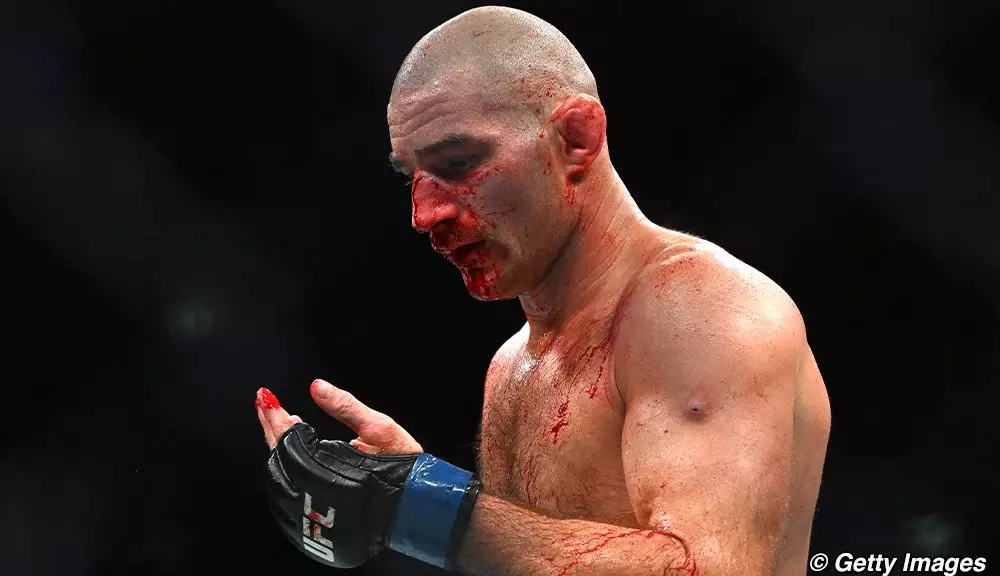The highly awaited UFC 312 showdown showcased the much-anticipated title rematch between Sean Strickland and Dricus Du Plessis at Sydney’s Qudos Bank Arena. This bout initially promised an exhilarating display of skill and strategy, yet it quickly evolved into an overwhelming disappointment from the perspective of Strickland’s head coach, Eric Nicksick. With Du Plessis emerging victorious through a clear unanimous decision, Strickland’s performance has been scrutinized not just for its outcome but for the apparent struggles he faced within the Octagon. This article delves into both the fight dynamics and the subsequent reflections offered by Nicksick, revealing a deeper narrative beneath the surface of what transpired during this title fight.
Understanding the Fight Dynamics
Right from the outset, it was clear that Sean Strickland was not operating at his usual capacity during the fight. Nicksick characterized his fighter’s approach as “uninspired,” likening it to a form of “sleepwalking.” This unusual lethargy manifested throughout the fight, leaving observers questioning Strickland’s mental state and preparation leading up to the bout. The coach noted his growing frustration as he tried to instill a sense of urgency and motivation into Strickland round by round. Such reactions underscore a pivotal point in competitive sports: mental preparedness is as critical as physical training. The lack of adjustments on Strickland’s part became starkly evident as Du Plessis controlled the pacing and rhythm of the match.
Nicksick criticized Strickland’s predictable tactics, emphasizing that relying only on jabs and teeps—essentially basic strikes—would not suffice against a calculated opponent like Du Plessis. This predictable offense paralleled a struggle seen in many sports, where teams fail to adapt their strategies while trailing. This notion critiques not just Strickland’s performance but also echoes a broader message within the realm of combat sports: taking risks is essential for success.
To understand the depth of disappointment following UFC 312, it’s crucial to analyze Strickland’s previous matchup with Du Plessis at UFC 297, which exhibited a different intensity levels. In that earlier fight, Strickland managed to win three rounds on one of the judges’ scorecards, indicating a more formidable effort in his first title defense. While the rematch provided fans an opportunity to witness an evolution of their rivalry, it instead showcased a significant decline in Strickland’s performance.
After UFC 312, Nicksick remarked on the discrepancy between the two performances, emphasizing that Dricus Du Plessis deserved an opponent who would truly challenge him as opposed to one willing to “minimize risk” and simply scale back their efforts. Strickland’s inability to rise to the occasion underlined a fundamental flaw: the psychological aspect of fighting. What makes a fighter great is not only their skill set but their ability to harness that skill in high-pressure situations.
Strickland’s rapid return to the title scene following his earlier defeat raised eyebrows among fans and analysts alike. Many questioned the UFC’s decision-making process, as it appeared to overlook other deserving contenders, particularly Khamzat Chimaev, who had recently secured impressive victories, including one against former champion Robert Whittaker. This situation speaks to a broader debate within the organization regarding matchmaking and the criteria used to determine a fighter’s qualifications for championship bouts.
Nicksick’s discontent resonates with the realities faced by fights and their respective training camps; each opportunity to compete for a title in the UFC is rare and should be treated with the utmost respect and dedication. Strickland’s lackluster performance against Du Plessis reflects more than personal disappointment—it reveals systemic issues within the sport concerning how fighters are propelled through the ranks.
Following the fight, Nicksick expressed a need for his fighter to reevaluate his aspirations within the sport. This moment of introspection is crucial not only for Strickland but also for any athlete confronting moments of perceived failure. Nicksick highlighted the importance of recognizing opportunities for championship contention—a rare chance that should instill motivation to perform at an elite level.
In an emotionally charged reflection, Nicksick challenged Strickland to clarify his intentions moving forward. If Strickland’s motivations lie solely in financial gain, then the journey may diverge from that of a fighter aiming for greatness. The nexus between ambition and achievement requires a robust internal drive and the willingness to embrace challenges.
Sean Strickland’s performance in UFC 312 was emblematic of the complexities that come with competition at the highest levels. The reflections provided by Eric Nicksick reveal not just disappointment but also the need for growth and self-evaluation. As fans and analysts look ahead, the question remains: can Strickland rise from this tumultuous chapter to reclaim his position within the UFC’s middleweight division? The answer may depend on his ability to introspect, adapt, and leave behind the mental inhibitions that hindered his recent performance. The sport awaits, as the path forward hinges on the lessons learned from this pivotal moment.

